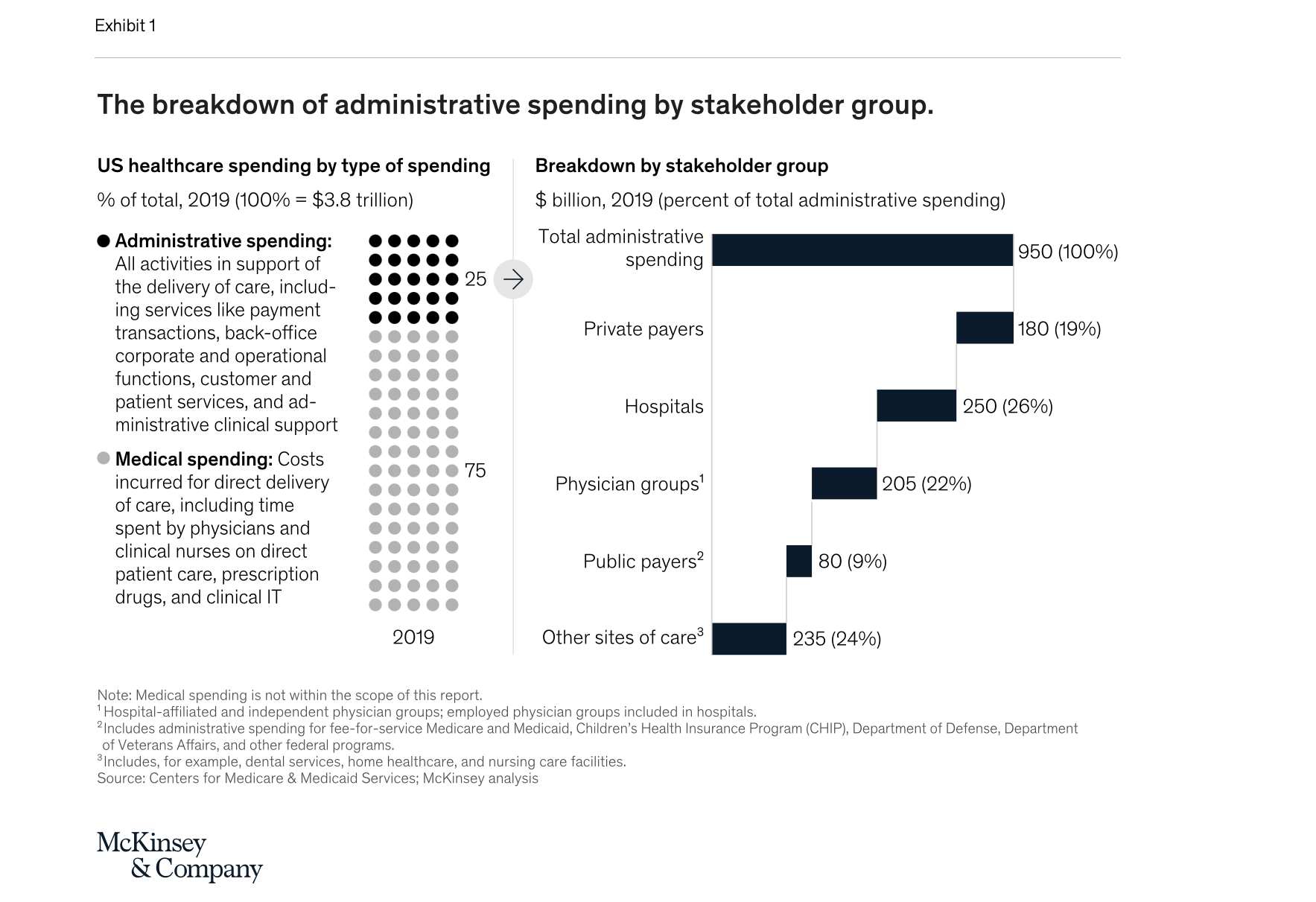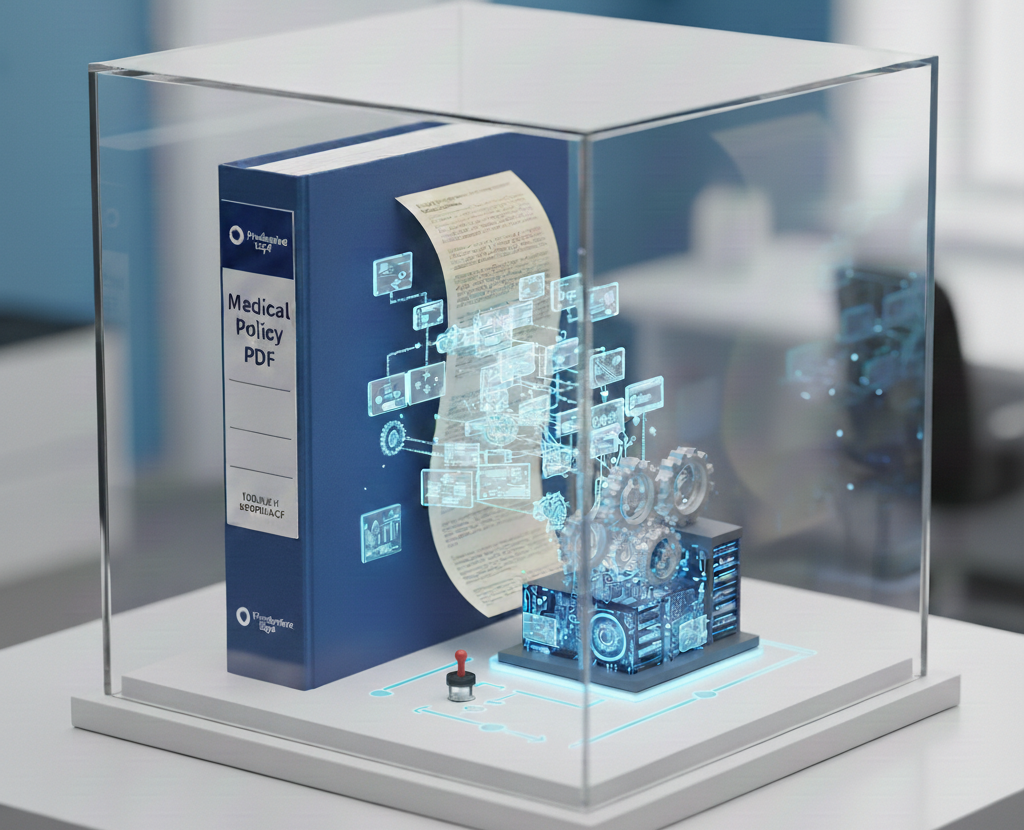Healthcare is in the midst of a digital transformation, and one of the leading technological advancements reshaping the sector is Robotic Process Automation (RPA). With the RPA market expected to reach $81.8 billion USD by 2032 from $3.7 billion in 2022, it's a technology that's taking every industry by storm.
The integration of RPA into healthcare processes holds the potential to bring about improved patient outcomes and significantly reduce administrative burden. However, like any transformative technology, it comes with its own set of challenges.
In this blog, we'll discuss the opportunities and obstacles of utilizing robotic process automation in healthcare and how it aligns with the larger vision of value-based care.
The Opportunities of RPA in Healthcare
Improved Patient Outcomes
The primary objective of any healthcare system is the well-being of its patients. In fact, a recent study has found that 92% of respondents place achieving better patient experiences as the top desired outcome of digital transformation. RPA has the potential to significantly impact patient outcomes. By automating repetitive tasks, healthcare providers can divert more time and resources to patient care. Whether it's quick access to patient records or timely billing processes, RPA ensures a smoother flow of operations, which indirectly contributes to better patient care.
Reduced Administrative Burden
Minimizing administrative burden is a significant challenge for all payers and providers, with administrative spending taking up one-quarter of the nearly $4 trillion spent on healthcare annually in the United States. As evidenced in Exhibit 1 below, it's pertinent for all healthcare stakeholders alike to implement strategies to minimize this cost.
With a substantial portion of healthcare professionals' time going into administrative tasks, RPA comes in as a key to automating mundane tasks such as appointment scheduling, data entry, and billing can be automated, freeing up personnel to focus on more pressing, patient-centric tasks. This not only boosts efficiency but also enhances job satisfaction among healthcare staff.
Data and Privacy
HIPPA (Health Insurance Portability and Accountability Act) mandates strict data privacy and security guidelines for patient data. RPA bots can be designed to be compliant with these regulations, ensuring that patient data remains secure. Automated processes can also reduce human error, further safeguarding sensitive patient information.
Healthcare Data Interoperability
A crucial aspect of digital transformation in healthcare is the seamless exchange of health information across various platforms. RPA can help achieve this interoperability by integrating different healthcare systems, allowing them to communicate with one another efficiently.
Cost Efficiency
By automating routine tasks, RPA brings about a significant reduction in operational costs. This is vital for the healthcare sector, where resources are often stretched thin. Automated processes tend to be faster and less prone to errors, further contributing to cost savings.
The Obstacles of RPA in Healthcare
-
Integration: While RPA promises seamless integration and interoperability, the reality is that the healthcare sector uses a myriad of systems, some of which are legacy systems. Integrating RPA into these platforms can be complex and time-consuming.
-
Data Privacy Concerns: Even with HIPPA compliance, there are concerns about the use of bots in handling sensitive patient data. Ensuring that RPA systems are consistently compliant requires continuous monitoring and updates.
-
Reliability and Trust: RPA is still a relatively new technology in healthcare. As with any new technology, there's a learning curve and a period of skepticism. Healthcare professionals might be hesitant to rely on automated systems, fearing errors or system breakdowns.
-
Training and Adaptation: Implementing RPA requires training staff to work alongside the automated systems. This can be seen as an added burden, especially in high-stress environments like healthcare. Convincing the workforce of the benefits of RPA and ensuring they are well-versed in its use is a challenge.
-
Scalability: While RPA is highly scalable in most sectors, healthcare presents unique challenges. The diverse and ever-evolving nature of healthcare processes means that RPA solutions need continuous tweaking and customization as they scale.
The Future: Value-Based Care and RPA
The overarching goal for healthcare is the transition to value-based care, where the emphasis is placed on patient outcomes rather than the volume of services rendered. RPA, with its efficiency and cost-saving measures, aligns well with this vision.
By reducing the administrative burden, healthcare providers can focus more on the quality of care. Automated data handling can also provide insights into patient care, offering ways to improve patient outcomes. Moreover, with the reduced operational costs that RPA offers, resources can be channeled more toward patient care, further emphasizing a value-based approach.
However, achieving this vision requires addressing the challenges that come with RPA. This includes investing in training, ensuring continuous compliance with regulations like HIPPA, and customizing RPA solutions to fit the unique needs of healthcare processes.
Conclusion
Robotic Process Automation in healthcare is not just a buzzword; it's an increasingly growing, transformative tool that has the potential to redefine healthcare processes. The opportunities it offers, from improved patient outcomes to reduced operational costs, make it an attractive proposition. However, the road to full RPA integration is fraught with challenges, from integration woes to data privacy concerns.
Interested to see how automation could take your organization to a new level of growth and efficiency? Download our eBook 5 Challenges And Solutions For Scaling Intelligent Automation Across The Enterprise to learn more.





